I am so tired. Not just from the trial. From all of it. The days are running together. My inbox is overflowing. Pea’s recital is this weekend. Nonstop money has been spent. My body feels like it’s moving through molasses. Everything is too loud or too quiet. There’s no in between.
This morning I opened my laptop to keep up with the testimony. I stared at the screen. Then I closed it. I didn’t even have the energy. That courtroom feels like it’s swallowing me whole. Every quote. Every sidebar. Every name that gets dragged back from the dead. It’s only week three but it feels like I’ve aged a year inside this case.
People keep messaging me. Is it true. Did he really do that. What’s going to happen next. I don’t know how to answer anymore. I don’t even know how to keep breathing in this story without choking on the weight of it. Because it’s not just what’s being said. It’s the silence underneath. The way everyone in that room knows something else is coming. Something worse. Something bigger. You can feel it pressing up against the walls.
Cassie had a baby this week. I teared up when I heard she was in labor. While her past was being dissected under oath, she was somewhere bringing life into the world. That contrast hit me hard. Not because it was beautiful. Because it was cruel. Because she should never have had to carry both.
This is not justice. This is exposure. This is excavation. This is what it looks like when the mask slips and the body count is not metaphorical. It’s not just headlines. It’s bruises. It’s trauma. It’s names we don’t even know yet.
And I am still here. Trying to make sense of it all while packing costumes and dance shit and pretending the world is not on fire.
Let’s go back to Day 10.
Capricorn Clark — The Assistant Who Thought She Was the Protector
Capricorn Clark has been with Diddy forever. Since the Sean John days. Since velour sweats and Baby Phat perfume. Remember Baby Phat?! She wasn’t just around. She was in it. And from the second she opened her mouth, you could tell she still hasn’t figured out whether she’s a survivor or an employee of the month.
She came in looking sharp. Gray suit. Hair flat. Voice steady. Like she was ready to deliver a keynote. But the more she talked, the messier it got. By the end she was spinning. Contradicting herself. Crying when it wasn’t even emotional. Giving off that same energy as someone who knows too much but still wants to be invited to the barbecue. You know what I'm saying?
She said working for Diddy meant thirty six hour shifts. No sleep. No eating. Wigs because her hair was falling out from stress. Her words not mine. She said she was terrified most of the time. That she wasn’t sure if she’d survive some days. And yet she stayed. Not just stayed. She said she thought her role was to protect him.
That part made me pause. Protect him? From what? From the women he was abusing? From the people he was stalking? From the fallout of the freak offs? From himself? Imagine being scared shitless every day of your job and still calling it protection. See the contradicting flops?
Then she told the lie detector story. And this is where the whole thing stopped sounding like a workplace dispute and started sounding like a deleted scene from Saw in a forty million dollar house. Diddy had just wrapped one of his infamous Fourth of July white parties in the Hamptons. The 2004 one, specifically. The one where he flew in on a helicopter holding a literal copy of the Declaration of Independence. One of only two hundred original prints from 1776. Because what else screams unity and Black liberation like a founding document that didn’t even count us as people.
That party was everything. All white dress code. All white tents. All white drugs. Aretha Franklin. Paris Hilton. LL Cool J. Reverend Al Sharpton. Mary J. Blige. Russell Simmons. Lennox Lewis. Jacob the Jeweler. Ed Lover. Fonzworth Bentley. Mark Ronson. The ghost of the Constitution. And behind all that glow was a warehouse of secrets. Because this wasn’t just a Fourth of July party. It was a branding campaign. A spectacle. A marketing stunt dressed up as a revolution. Diddy called it Vote or Die. A civic initiative where celebrities wore fifty dollar tank tops and threatened you with premature death unless you registered to vote. It was supposed to be about uplifting the Black vote. It turned into a campaign to trick Black people into voting a certain way based purely on skin color. No policy. No promises. Just vibes. It was branding dressed as urgency. Hope on a hanger. Black liberation sold back to us by Cîroc.
And Diddy wasn’t doing this alone. He was shoulder to shoulder with politicians. Smiling for the cameras with every political asshole who knew better than to actually do anything. The ones who show up to Black events for photo ops and leave as soon as the flash goes off. It wasn’t about change. It was about control. Influence as illusion. Democracy as costume.
And this is what they don’t teach you in history class. Not because it’s not important. But because it ruins the script. The lie of Black excellence. The illusion that a few shiny names at the top mean the rest of us are free. But what they’ve sold us as progress is just curated survival. A front row seat to our own erasure. And behind that curtain sits the Black Boulè.
Founded in 1904. Sigma Pi Phi. The Talented Tenth. The buffer class. The ones handpicked to keep the rest of us in check. Not to challenge power. To guard it. Not to liberate the people. To manage them. They didn’t rise up. They were lifted. Groomed. Positioned. Rewarded for obedience and used as proof that the system works. It doesn’t.
Notable Members of the Black Boulè
W.E.B. Du Bois
The man who gave us the term "Talented Tenth" and tried to warn us about the very class structure that still strangles us today. DuBois didn’t build the system, he studied it. He named the trap. He exposed the way respectability, education, and status were being weaponized to divide the Black community from within. But he was ok with it cause he was apart of the group. DuBois believe in a hierarchy. He thought a polished, educated elite could lift everyone else. That might have sounded noble then, but in practice, it fed the same old gatekeeping in new clothes. It told us to strive, to assimilate, to polish our diction and press our collars. While the real power stayed untouched.
Martin Luther King Jr.
Not the saint you were taught. Managed. Funded. Handled. He was only safe when he was silent. And when he started telling the truth about war and capitalism, they killed him. The Boulè made sure the suits stayed pressed and the message stayed manageable.
Barack Obama
The face of manufactured progress. Told you yes we can while bailing out banks and bombing the Global South. Black America got symbolism while Wall Street got protection.
Eric Holder
Put in power to bring justice. Brought nothing. Oversaw mass surveillance and let the architects of the housing collapse walk away untouched.
Vernon Jordan
Turned civil rights into a speaking fee. Sat on every board. Collected every check. Made sure Black struggle stayed polite and profitable.
Henry Louis Gates Jr.
PBS’s favorite Black historian. Curator of safe nostalgia. Always ready to remind white people how far we’ve come without ever naming who held us back.
Colin Powell
Sold lies for war. Then walked it back with a memoir and a smirk. His credibility cost lives and he cashed the check.
Charles Rangel
Old-school Harlem machine. Watched the neighborhood be gutted by developers and kept shaking hands anyway.
Al Sharpton
From firebrand to filler. Speaks just loud enough to stay booked. Just soft enough to never get cut off.
So basically, every single person on that list made peace with the machine and sold us out to stay fed. And for their families bloodline to continue it.
Maybe that’s why he brought the Declaration of Independence. Not to honor it. To mock it.
To show us exactly where we stood. By we, I mean all of us who dont have Fuck You Money. Not just black people. Its all of us. We’re still property. Still performative. Still waiting for freedom on paper while the party goes on without us.
Capricorn says she was summoned to an unfinished building in the Bronx. Said she thought it was some off-site testing facility. Turns out it was Bad Boy headquarters. His property. His cameras. His script.
She said she was strapped to a polygraph machine for five hours. And not just once. Five days in a row. Hours and hours of long sessions. Hooked up to wires. Not in a federal building. No lawyers. Just a large stranger asking the same question over and over. Did you take the jewelry. At one point, she said the man running the test told her, they’re going to throw you in the East River if you don’t pass.
That’s not HR. That’s terror. That’s what it means when the line between boss and captor is so blurred you stop noticing the walls.
She said she thought she might die. She was interrogated for hours on end. Couldn't sleep . Hair falling out and still, she came back to him.
She left in 2012. Came back in 2016. And when they asked why. She said I needed a job. Then she doubled down and said she would still work for one of his companies today.
Really, Capricorn? Really? After everything?After laying out years of control and trauma and threats. You still want that bag? Ma'am, please.
Imagine being Diddy. Sitting in that courtroom. Listening to all of this. Face flat. Hands folded. And then hearing her say that. He probably didn’t flinch. He’s too trained. But you know what that moment did do for him?
It validated him.

That sentence was a gift. A pivot. A way to reframe everything she had just said. Because if she would still work for him, then how bad could it have been? That’s what the defense wants the jury to think. That’s what Diddy has relied on his whole life. Not silence. Reversals. People who turn on themselves so he doesn’t have to say a word.
He has weaponized loyalty for decades. Turned proximity into protection. Capricorn’s statement gave him cover. Gave him doubt. Gave him control again. Well, in his head, anyways.
He likely saw that as proof that his grip still works. That even after the wigs and the pills and the East River threats, she still sees him as a paycheck. Still sees him as a gate.
And that is insanity, my friends.
He probably didn’t even hear it as betrayal. He heard it as leverage. “They always come back.” That’s the message. That’s the rhythm. That’s the playbook. It doesn’t matter what they say on the stand as long as they remind the world they’re still willing to play the game.
That line was supposed to weaken his case. Instead, it became a secondhand defense. An unintentional character witness. The kind of thing that makes men like him smirk in private. Because to Diddy, it means he still wins. And if you looked at him in that moment, you wouldn’t see fear. You’d see satisfaction.
She said she worked closely with Cassie. But the way she said it felt off. She wasn’t warm. She wasn’t protective of her. I didn't like it. She spoke about her like someone who always thought she didn’t deserve the seat she was given. It was subtle at first. Phrases like I handled things for her. I kept her in line. She was vague about what exactly Cassie needed so much help with. But then she said Cassie can’t sing. Like what?! Just dropped it in. No remorse. That was just unnecessary, to me. That was someone who had been sitting on that comment for years. Who probably said it behind closed doors. She watched this girl get beaten and stalked and still decided to take a dig at her vocal cords? I mean…
TO ME- Capricorn didn’t talk like a friend. At all. She didn’t talk like a witness. She talked like someone who felt like she should have been the one next to Diddy. Not the one cleaning up after him. That’s not sisterhood. Im a girls girl. She wasn’t giving me those vibes.
But maybe that’s the only way she knows how to survive now. She wanted to be the center of the story without carrying the weight of it. She wanted sympathy and control in the same breath. And that’s what made her so hard to watch. Because the prosecution did a brilliant job laying it bare. This wasn’t just a job gone bad. This was a long-term psychological breakdown. What she gave wasn’t clean victimhood. It was confusion. Complication. The kind that only happens when someone has spent years trying to protect the same person who made them feel unsafe. You don’t say I thought I was going to die and then offer your résumé to the man who put you in that position unless you’ve been completely rewired. So no. That’s not bravery. But it’s not betrayal either. It’s the aftermath of being owned. And if you’ve ever seen someone in a cycle like that. You know exactly what it looks like.
Day 11 – The Blood Stayed on the Marble
Deonte Nash took the stand and gave exactly what you’d expect from a man who had styled Cassie Ventura through hell and still kept his edges intact. They asked how he was doing. He said it clean.
“Blessed.”
That was it. One word. But it told the whole story. Blessed. Like he knew he wasn’t supposed to be there but figured since God woke him up and gave him lotion, he might as well testify.
Then they showed him a picture of himself from back in the day. A photo from the Cassie era. He barely blinked before giving the courtroom its first honest laugh.
“That’s a glam shot. Yes, I look amazing.”
And from that point on, we knew exactly what kind of witness this was going to be. Real. Funny. Unfiltered. And still carrying the weight of what he saw.
He testified about a 2013 incident. Cassie and Diddy. A hotel room. She was getting ready for OVO. Diddy showed up unannounced and an argument broke out. Nash said Diddy dragged her by the hair and slammed her into a bed frame. She hit her head and started bleeding.
He and another assistant tried to help but couldn’t stop it. He said Diddy looked down at the damage and said
“Look what y’all made me do.”
Then Nash described finding her after. On the marble floor. Face swollen. Blood smeared across the tile. She didn’t want to go to the hospital. Didn’t want to call anyone. She was scared. Not just of what happened. Of what would happen next. Her career. Her image. Her safety.
And that’s when he said it. Quiet. Raw. Familiar.
“Girl... the blood was on the marble.”
Not for effect. Not for laughs. Just the only thing left to say after you’ve seen that kind of violence and still had to grab a towel.
He talked about the names Diddy used to call her. Not pet madness either. He said Diddy called her bitch. Slut. Ho. All the time. In front of people. Like it was her name. Nash said bitch was his “fave.” And Cassie would go quiet. You could see her fold inward. She wouldn’t speak for days. She would isolate. She would vanish inside herself.
That part matters. Because people in abusive relationships don’t always scream. Sometimes they go silent. Not because they’re okay with it, but because they’ve learned that no one is coming. Especially when the abuse happens in front of others. That’s the kind that cuts deepest. When someone hurts you publicly and the room just keeps moving. When the laughter stops but he doesnt. When no one says anything. That’s when the brain starts rewriting its own boundaries. That’s when the voice shuts down.
Victims who are humiliated in front of others stop trusting the world. They stop speaking because what’s the point? You screamed with your eyes and nobody moved. You said help me without words and the only response was silence. Followed by another drink being poured.
So you disappear. You isolate. You stop sharing. You stop asking. Because the people who were supposed to intervene looked away. And the man who hurt you did it with an audience. Which means he didn’t care if they saw. Or worse. He wanted them to.
Cassie didn’t just go quiet because of Diddy. She went quiet because of the silence that surrounded him. And that’s what made her vanish.
He said Diddy had sex tapes. Told Cassie he would send them to her parents. Said he would get them fired. Said he would ruin her. And she believed him. Because he could. And has been. For a long time.
Then came the surveillance. Nash said there were cameras everywhere. She couldn’t cry without it being recorded. Couldn’t flinch without someone noticing. Everything she did was monitored. She wasn’t in a relationship. She was in a system. He said Cassie was never free. Not in her body. Not in her house. Not even in her head.
Even with all that, Nash stayed steady. He answered every question like someone who had waited years to be asked. No drama. No hesitation. Just facts. And when they asked if he wanted to be there, he didn’t fake it.
“I absolutely do not want to be here.”
But he showed up. He told the truth. He gave the jury every piece of it. And when he finished, the room was quiet, because he didn’t just back Cassie. He brought the floor with him. The blood. The silence. The knowing. And he laid it all out where nobody could pretend it didn’t happen.
And yes. He looked amazing doing it.

An Emotionally Charged Courtroom
Cross-examination flipped the room. Nash walked back in, looked around like he just walked into an icebox and said, “It’s freezing in here. How y’all do this all day?” The gallery chuckled. Then Donaldson, still trying to earn some points after a week of losing them, commented on Nash’s bomber jacket. Nash didn’t flinch. “Not your size.” The jury laughed. Gallery cracked. Donaldson kept smiling like he didn’t just get verbally folded.
Then it all shifted. Once Nash got back into what Cassie endured, the oxygen in the room changed. The blood. The silence. The tape threats. The knowing. The jury leaned in. One person blinked hard and didn’t move again. Another just set their pen down like they were done pretending this was normal.
Donaldson circled like he thought repetition was strategy. Same question, different wording, over and over. Then he asked, “What does a stylist do?” One juror leaned into her fist like her own bones were holding her up. Judge Subramanian cut in, flat and clean. “Are we really asking what a stylist is?” Someone at the prosecution table exhaled and said, “Is this really happening?” Like they couldn’t believe they were wasting time explaining hair and shoes while people were testifying about blood on bathroom floors.
Then came the part no one was expecting. Nash said Diddy once choked him at a video shoot. Why? Because he was seen talking to Cassie. That’s it. He didn’t yell when he said it. Didn’t even pause. He just said it like it was something you eventually get used to. He didn’t report it. Said he already knew how that would end.
He said he used to carry cash. Not for food. For safety. In case he had to disappear. That wasn’t paranoia. That was policy. Capricorn Clark said the same thing. Two people. Two jobs. Same rule. When everyone in your orbit knows to stay ready to flee, that’s not a toxic workplace. That’s a trap.
Then came the mistrial motion. Donaldson stood up like he was delivering the climax of a courtroom drama and declared the fingerprint evidence a bell that couldn’t be unrung. The line echoed in the gallery like he thought it was going to win him an Emmy. The judge looked unmoved. The jury was out of the room by then, and probably grateful. Subramanian shut it down immediately. No deliberation. No patience. Just no. Told the jury to disregard. Told everyone else to keep it moving.
Diddy’s family sat behind him like a perfectly curated wall of silence. Janice was styled like she was headed to church and court at the same time. Christian leaned into her like he was trying to physically exit the moment. They didn’t flinch. Didn’t blink. Not a hair out of place. Not a single emotion cracked.
Then Nash said Cassie had given birth the day before. Her third child. He said he texted her congrats. And that line landed like a whisper that screamed. Nobody reacted. Nobody needed to.
He talked about the drugs. The freak-offs. Molly. Mushrooms. Coke. Said Diddy filmed it all. Said Cassie didn’t want to be there. Said nobody ever really did. Said it the way you talk when you’re tired of holding secrets that never protected anybody.
And then he was done. Nash stepped down. No applause. No nods. The defense looked half-erased. The jury sat still. The prosecution didn’t even shift. The weight in that room didn’t move when he did.
It stayed.
The Industry Cleanup Crew
They don’t run from the fire. They fund it, then host the afterparty.
Capricorn Clark walked into a meeting thinking she might get a job. Jimmy Iovine and Larry Jackson were there waiting. Titans. Taste-makers. Men with enough power to launch empires or bury them in legal mulch. But she wasn’t there to pitch. She was there to be handled. Not screamed at. Just... redirected. Professionally. Politely. Permanently.
She said they told her to stop talking about Diddy. That going public wasn’t going to end well. It wasn’t a threat. It was a reminder. She wasn’t powerful. She was interrupting power.
This wasn’t about Puff. Not really. This was about the machinery behind him. The handlers. The executives. The billionaires in minimalist offices who never show up in court but always seem to know what everyone should say after they leave it. The men who pick up the phone and clean it up before the media ever hears the mess.
Let’s name some names. Shall we?
Jimmy Iovine
Interscope’s puppet master. Dre’s damage control. The man who turned felony-grade misogyny into a Grammy campaign. He was there when Capricorn Clark was told to fall back. Not to listen. To comply. It didn’t come with threats. It came with stillness. The kind of message that doesn’t need to be spelled out because it’s already written into the walls. Jimmy knows how to protect an investment. When Dr. Dre threw Dee Barnes through a wall, the press cycle was short. When Michel’le spoke out about years of abuse, she disappeared from the narrative. When Beats was sold to Apple for billions, the blood had already been mopped up. The violence never made it to the keynote. That’s the Iovine effect. He doesn’t spin scandals. He neutralizes them. He didn’t silence women. He made sure no one was listening. Capricorn didn’t walk into a meeting. She walked into a machine. By the time she sat down, the decision had already been made. She wasn’t a threat. She was a loose thread. Her presence needed to be adjusted, not acknowledged. Jimmy doesn’t make noise. He reroutes it. He doesn’t confront chaos. He repackages it. When the story gets ugly, he builds a newer, cleaner one right on top of it. Capricorn came looking for a job. What she got was a map back to irrelevance. The industry’s way of saying thank you for your time, now disappear. And that’s what Iovine does better than anyone. He doesn’t just protect the empire. He decides who doesn’t belong in it.
Larry Jackson
The ghostwriter behind every comeback. The man who can polish a predator into a playlist and call it a “new era.” Larry doesn’t do damage control. He operates. Quiet. Precise. Like Dexter in a Balenciaga jacket. He’s done it too many times to flinch. At Apple Music, he helped reengineer narratives for Drake, Nicki Minaj, and Frank Ocean. He turned PR chaos into exclusives. He launched Beats 1 and turned Queen Radio into a full-scale distraction machine. He made OVO Sound Radio sound like a movement, even when it was just mood music and misdirection. Now he runs Gamma. A billion-dollar media machine backed by Apple and Eldridge. Usher. Rick Ross. Snoop. French Montana. Sexyy Red. That roster doesn’t scream innovation. It screams Diddy party guest list. Half of them are already knee-deep in scandal. The other half are probably one subpoena away. Gamma isn’t building talent. It’s recycling liabilities. He was in the room when Capricorn Clark got silenced. Not with threats. With posture. Larry didn’t need to say much. Men like him speak in tone and pacing. She wasn’t there for a job. She was there for a reminder.
Why does he look like Ludacris if Ludacris pivoted to laundering reputations instead of bars? Same face. Same smirk. But now he’s holding a billion-dollar content strategy instead of a mic. One rapped about fantasy. The other sells it.
Larry doesn’t clean up messes. He floods the timeline. He doesn’t respond to victims. He responds with rollout dates. Drop a collab. Drop a docuseries. Drop a carousel of “healing” photos like you’re Ciara or Hailey Bieber trying to pretend your man isn’t a villain. And then poof. Problem gone. Or at least buried under a remix. Capricorn wasn’t in crisis. She was in the way. And Larry’s job has never been to fix the machine. It’s to keep it moving.
And Gamma? That thing was never just a label. It showed up with a billion-dollar valuation and a vibe that screamed black box, not blueprint. Backed by Apple and Eldridge, sure, but with no clear business model, no catalog, and no transparency about how the money flows. They say it’s artist-first. What they don’t say is what’s in the fine print. Contracts locked tight. Control disguised as creative freedom. And the press? Lapping it up like this is some cultural renaissance instead of a soft power machine built for silence.
Industry insiders have started calling it The Vault. Not because it’s valuable. Because once you’re in, the public version of you gets locked behind marketing assets and moodboard aesthetics. This isn’t a creative platform. It’s a crisis management farm. A place where liabilities go to get filtered, branded, and quietly put on autopilot. High-res visuals. Carefully timed “healing” content drops. A docuseries if you’re lucky. A capsule collab if you’re not. It’s Ciara posting sunset affirmations. It’s Hailey Bieber’s “I’m thriving” carousel two weeks after chaos. Gamma is the staging ground for sanitized comebacks.
It doesn’t help that Larry’s got a distribution pipeline now. Gamma bought Vydia. So not only do they own the artist’s narrative, they own how and where the music lands. Vertical integration dressed like innovation. When you control the press, the platform, and the playlist, who’s going to challenge your version of the story?
And then there’s the question no one will ask on the record. Who really runs Gamma? Apple wrote the check, Eldridge signed off, but you start digging and the lines go blurry. Some in the room think Gamma is less about disruption and more about storage. A holding zone. A purgatory for artists who know too much, or have been too close to the mess. The freak-off orbit. The Diddy pipeline. Artists with sealed settlements and Instagram story amnesia.
This isn’t about reshaping the music industry. This is about freezing it in place. Locking it in a glass case and charging it to brand sponsors.
Because when Gamma enters the picture, the story doesn’t evolve.
It disappears.
Andre Harrell
The man who gave Diddy his first shot and never once asked what he was aiming at. He hired him, promoted him, and protected him. Misa Hylton was first—more than a girlfriend, she helped shape the look of Uptown. Then she got cut out of the narrative. That was the prototype. Diddy moved on to Kim Porter like it was a casting call. Already had Misa. Kim was with Al B. Sure. Didn’t matter. He made the grab. Then came the tantrum caught on video—papers flying, phone launched, screaming about getting whatever he wants. “I’m a savage.” That wasn’t performance. That was the policy.
Andre didn’t stop it. He rewarded it. When Uptown let Diddy go, Andre helped him land at Arista. Not a consequence. A promotion. The label’s greatest legacy might be the silence that followed it. Heavy D. Craig Mack. Kim Porter. Andre himself. Gone. No answers. Just tributes and retrospectives with the uncomfortable parts cut out.
Mary J. Blige was publicly destroyed by K-Ci while the label packaged it as chemistry. Nobody stepped in. Pain sold records. That was the business model. And when Andre was handed Motown, the media spun it as progress. Black Excellence. A full-circle moment. More like elite recycling. Same machine, different blazer.
Before he died of heart failure at 59, Andre was working on a TV series about Uptown’s legacy. Executive produced by Diddy. And for a moment, people wondered if he had started asking questions. Looking too closely. Making phone calls. Then he was gone. Just like that.
Andre didn’t just create a star. He protected a system. And whatever he might have found at the end, we’ll never know. But Diddy’s name was still on the call sheet. So draw your own conclusions.
Clive Davis
Clive Davis is not just a music executive. He’s the gatekeeper. The price of entry? Depends who you ask.
Whitney Houston died in the Beverly Hilton, hours before his pre-Grammy party. Her body was still upstairs. Clive threw the party anyway. They said it was what she would’ve wanted. Be serious. Who throws a party the night one of your biggest artists dies? Who walks down a carpet while her corpse is still warm? Who drinks champagne while her daughter is in the next room? Clive Davis and apparently, other celebrities do. And don’t say he didn’t know. Whitney was clean. That’s what her team said. Her friends. She was shooting a movie. Sharp. Sober. Focused. But somehow she ends up dead in a tub before the biggest night in music? And the man who built her into a brand keeps the show going. Yeah, ok. Then the more she gave to Brandi, during Brandi's interview? It was all strange. Chaka Khan said it was sick the party went on. She didn’t show up. That’s called integrity.
He’s done it before. Janis Joplin said she felt watched. Go watch the documentaries. She talks about the paranoia, the pressure, the vultures. She wasn’t wrong. Clive signed her. Got close. There were rumors they were in a relationship. Romantic. Sexual. Industry-necessary. She died at 27. He lived to tell her story…Of course he did. The conspiracy isn’t complicated. It’s access. It’s who had it. And who didn’t.
Let’s talk about Diddy.
Jaguar Wright said it outright. Clive turned him out. That’s how Bad Boy got born. You want the deal, you pay the toll. And in this business, it isn’t always money. Ask around. The stories don’t come from fans. They come from people who were there. The artists who didn’t play the game got shelved. The ones who did got deals.
Clive came out as bisexual late in his career. But the industry knew. Not because it mattered but because it was weaponized. Power, sex, compliance. It’s the oldest currency in the room. And Clive held the bank.
Reporters caught him outside once, the last time he was seen out and about. They asked about Diddy. He acted like he didn’t know who they were talking about. The man who helped make Diddy a household name suddenly had amnesia. That’s not confusion. That’s control.
And then there’s Barry White. Even Barry knew. There was tension there. Whispers that Clive tried the same tactics. That Barry pushed back. That there was fallout. But Barry didn’t play that game. He didn’t need to. He had his own voice. And it scared people like Clive. Because Clive doesn’t create stars. He collects them. Breaks them. Packages the aftermath. And writes the liner notes.
When people die around Clive Davis, he doesn’t fforwardHe didn't even atten. *Angie Stone*He moves the date forward. Books the venue. Sends the invites. Calls it legacy.
But we know better.
LA Reid
From LaFace to Hitco, Nothing Changed but the Lighting. LA Reid built his name in bright lights. But the women he built it on got left in the shadows.
He started as a drummer, made his way into executive offices, and became the man behind LaFace Records. The label was marketed as a dream factory for Black talent. It was anything but. LaFace was a trap in heels.
Toni Braxton was one of the first signs. She was a breakout star, a Grammy winner, a chart-topper. And she was broke. Reid celebrated her voice, but buried her with contracts so predatory she had to file for bankruptcy. When she pushed back, he stalled her career. He ghosted her third album. She sued. They settled. And the damage was done.
Then came TLC. The best-selling girl group of all time! Somehow, also bankrupt. The label let them dress in condom couture for the world stage but didn’t let them access the money they earned. They were told to be grateful. Told that fame was the reward. Reid made sure the cameras kept rolling while the checks didn’t clear.
Then there was P!nk. She said it outright in her song:
“LA told me, ‘You’ll be a pop star. All you have to change is everything you are.’” That wasn’t a lyric. That was his whole philosophy. Sign women. Strip them. Rewrite them. Control them. If you were too bold, you were difficult. If you didn’t obey, you didn’t last.
And then there was Usher. Yes, let's not forget ‘Ursher Baby.’
Signed to La. Signed to LaFace as a teenager. Marketed as the next icon before his voice had even finished changing. LA Reid signed him, but he didn’t raise him. That job was handed off. To Diddy.
Yes, Diddy. Usher was sent to live with him at thirteen. That wasn’t mentorship. That was grooming by proximity. In a Howard Stern interview, Usher admitted the whole setup was insane. He called it “pretty wild.” Said he saw “very curious things.” Parties. Women. Drugs. Chaos. He said it like someone who had learned not to flinch. Someone who had to normalize the madness just to survive it. And when Stern asked if he’d ever send his own kids to live like that? Usher laughed. Said, “Hell no.”
So why did he send Bieber?
That’s the part that doesn’t sit right with me. Right though? After everything he saw. After everything he lived. Why would Usher hand Justin Bieber to Diddy the same way LA handed him off? Why sign Bieber to a joint label, then introduce him to the exact same machine?
There’s a clip of Diddy talking about his “48 hours” with Bieber. Said it was a dream for a 15-year-old. That they were going full crazy. No supervision. No parents. Just Diddy and a teenage boy for two days. That isn’t a punchline. That’s a red flag the size of Ford Field.
Jaguar Wright said Usher facilitated it. Said he “gave” Bieber to Diddy for a period of time. That it wasn’t a mistake. That it was part of the system. That if you want to stay in the game, you learn how to play it.
Usher has never spoken out about LA Reid. Or Diddy. Or the things he saw. And maybe that’s why he’s still here. Maybe that’s what silence buys you in this business. Not survival. Just access.
For LA though, it didn’t stop with creative control. In 2017, he was forced to resign from Epic Records after a female assistant came forward. She said he made sexual comments. Touched her without consent. That she felt unsafe. More women followed. Quietly. Their stories lined up. Same language. Same behavior. Same pressure.
Then came Drew Dixon. A respected music executive. She said LA didn’t just harass her. He assaulted her. Groped her. Cornered her. Threatened her job when she resisted. She says the abuse was ongoing. She filed a lawsuit. She said what many in the industry already whispered. That LA Reid used his position the same way Russell Simmons did.
Jaguar Wright backed her up. She called him out. Said he was part of the same elite ring. Said he sabotaged women. Pushed out voices that refused to bow. That he didn’t work for women. He worked for the machine.
And then there’s Rihanna. LA didn’t believe in her. Thought she was just a pretty face. Let her sit in the waiting room for hours. Jay-Z had to step in. People act like that saved her. It didn’t. Rihanna wasn’t lucky. She was trapped. Jay-Z threatened to throw her out of a window if she didn’t listen. Eighteenth floor. Her words. He said it. Nobody blinked.
She didn’t make it because of LA. Or Jay. She made it despite both of them.
After Epic, LA should’ve been done. But he launched Hitco. A rebrand. A corporate rinse. He called it a platform for artist empowerment. What it really was? A safehouse for his ego. A soft landing for a predator in a suit.
He signed Saint JHN. Big Boi. Delacey. Dixie D’Amelio. Yeah. After everything we can look up on the internet. That is not surprising either, though. Her parents are just as Fame hungry. Probably would've let her go to a Diddy White Party back in the day. Just sayn. Buzz-worthy names with just enough press to make people forget the lawsuits. Hitco was smaller, but the tactics were the same. Control. Image. Access. The power stayed intact. It just got quieter.
Because the music industry doesn’t exile predators. It relocates them.
LA Reid didn’t build a legacy. He built a system.
And even after all of it, they still call him a genius.
Day 12 Forecast. Constantly Refreshing X While Pretending to Parent.
Let’s be honest. We’re all exhausted. Emotionally, spiritually, legally. I’ve had one eye on the courtroom and the other on Pea’s recital checklist while refreshing X like it’s a hostage negotiation.
Capricorn already took us on a trip from corporate hostage to East River threat victim to part-time Diddy apologist. Nash brought the marble. The glam. The silence. And now the defense is hanging on by a thread.
Tomorrow or today, I guess. We’re expecting games. The kind of games that make you question if the defense actually read their own notes. They’ll repeat the same question five ways, hoping to crack a witness who’s already survived worse than anything they can throw. It’s going to be slow. Annoying. Like a bad date that never ends.
And if Mia shows up? Cancel your meetings. Mute your partner. Tell your toddler theres a Bluey marathon. Have something in the crockpot. In case u need to ignore everyone in your life. (Hehe jokes.)Because it’s about to get serious. That name has been whispered all trial. She’s not an extra. She’s not background. If she takes the stand? She could turn this whole thing sideways. It’s going to be new names. New dates. New reasons to scream into a throw pillow.
So yeah. I’m tired. But I’m still here. Watching BJ Investigates on my YouTube. Scrollong thru IG. Posting in real time. Screenshotting everything like they are sacred scrolls. Because Day 12 might not just move the trial forward.
It might blow the doors off.
Don't forget to check out my Instagram page Aliceredpill12.
And my podcast! Alice Uncoded.
Thank you all so much for your support. Sorry this is so late. MOM LIFE.

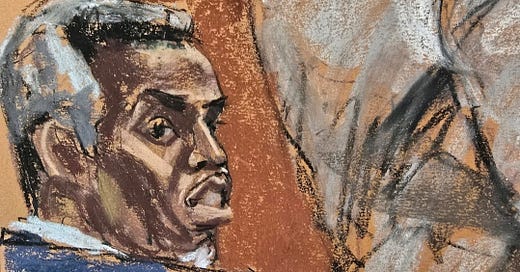



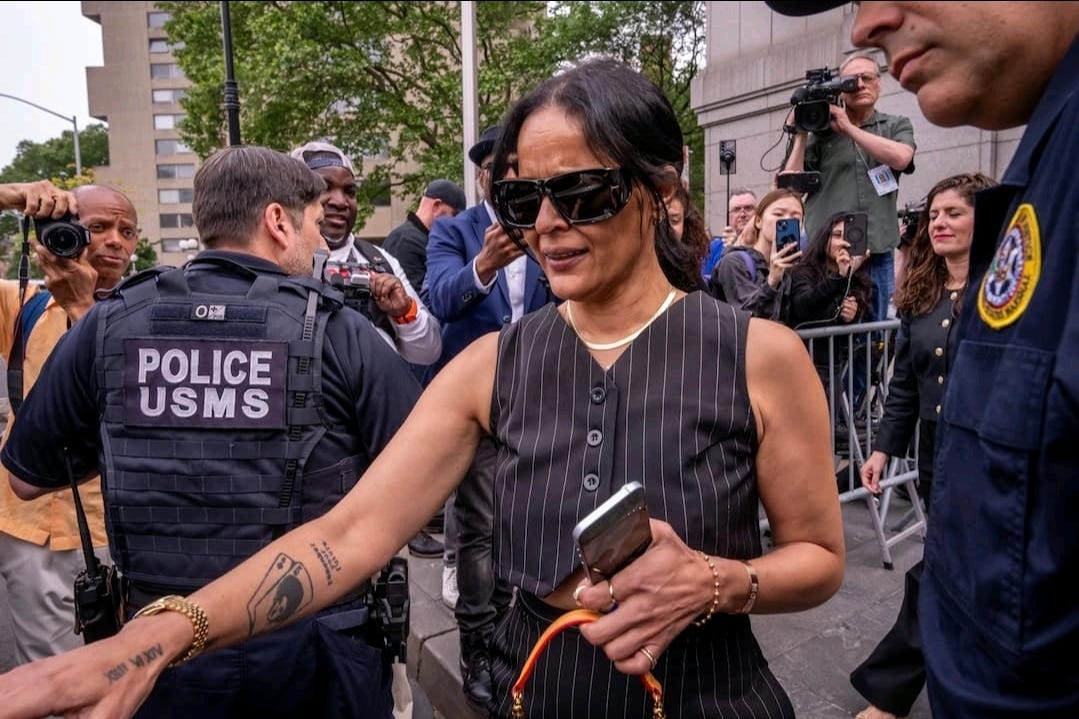

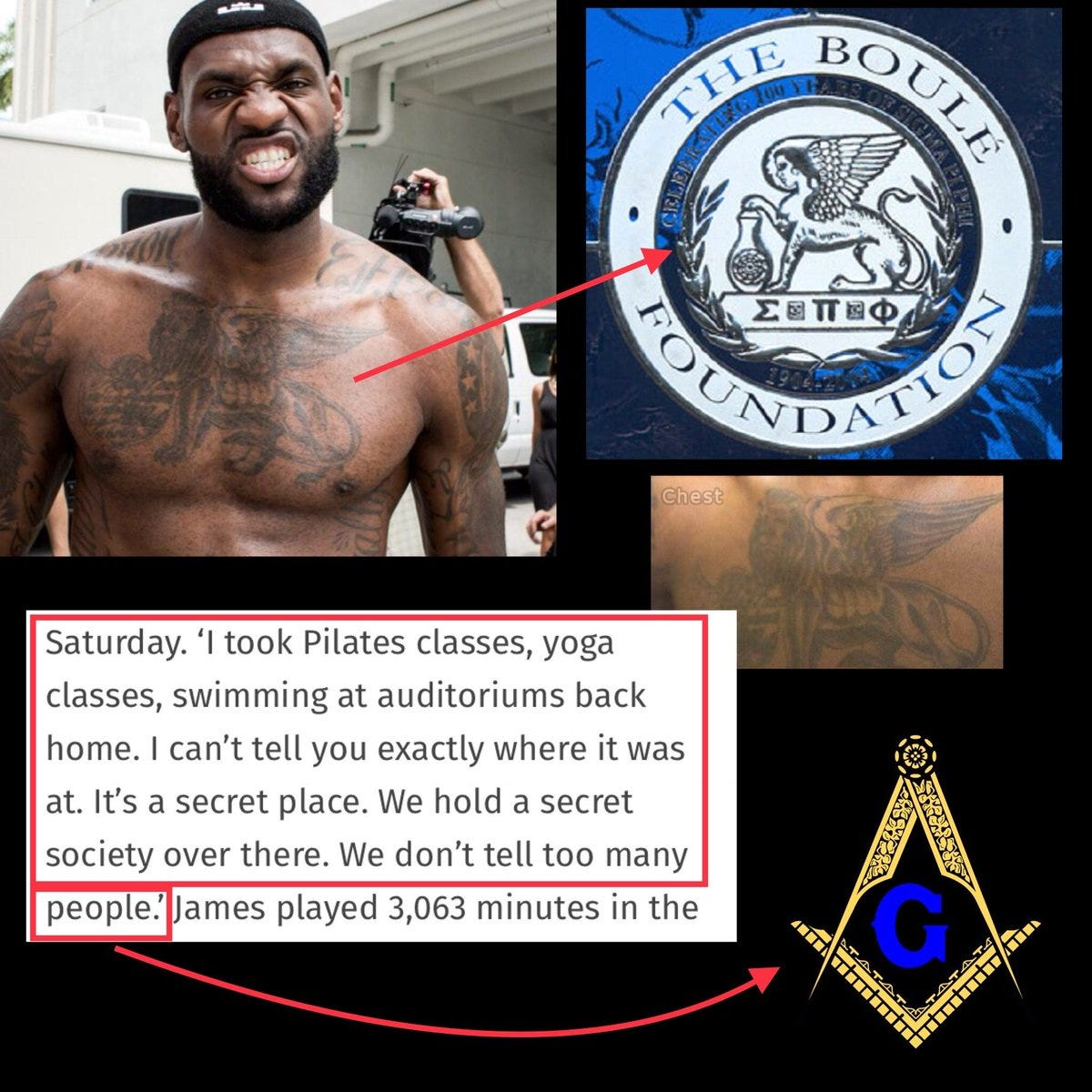

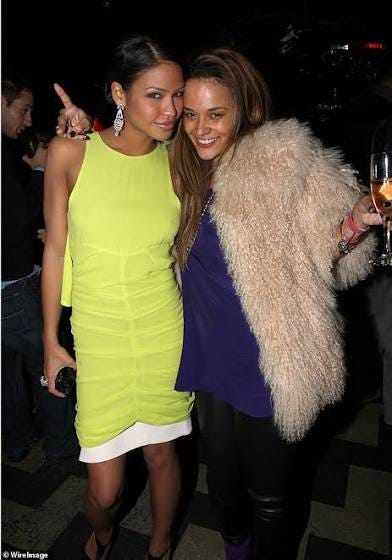



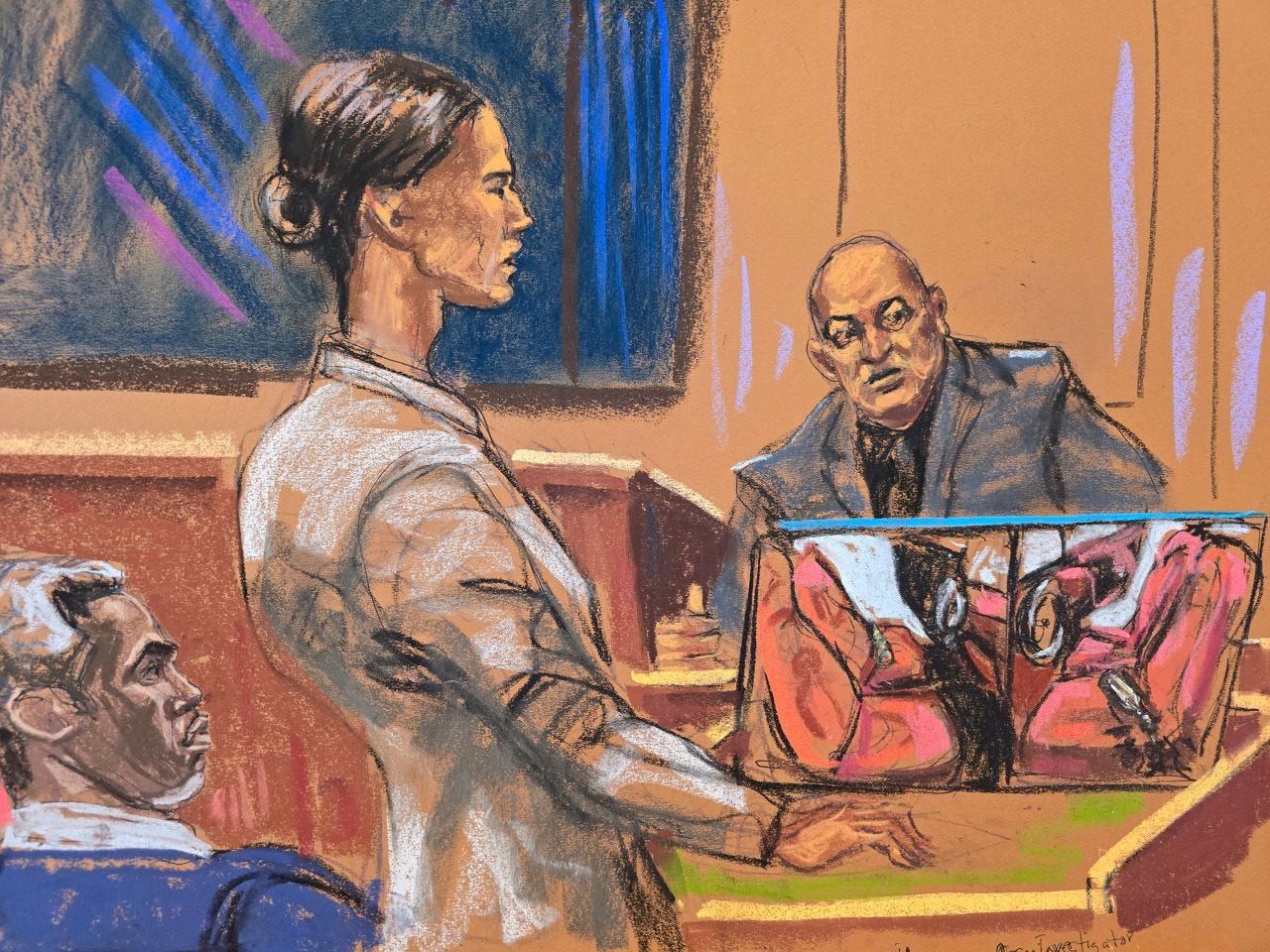
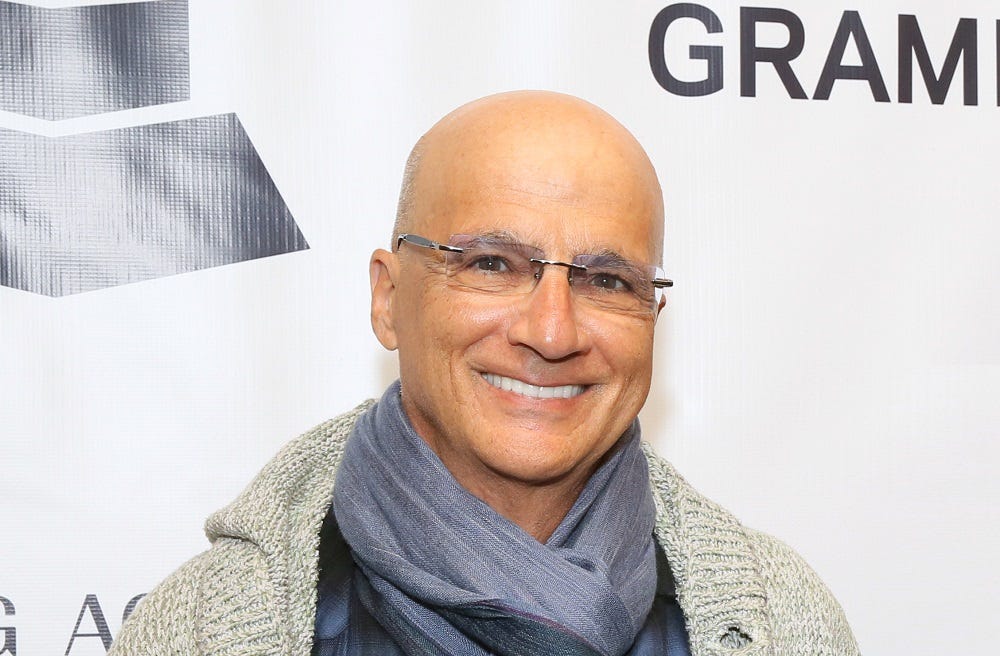
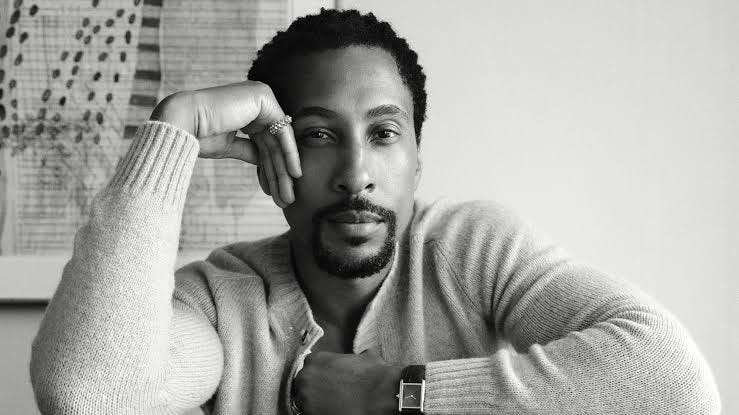


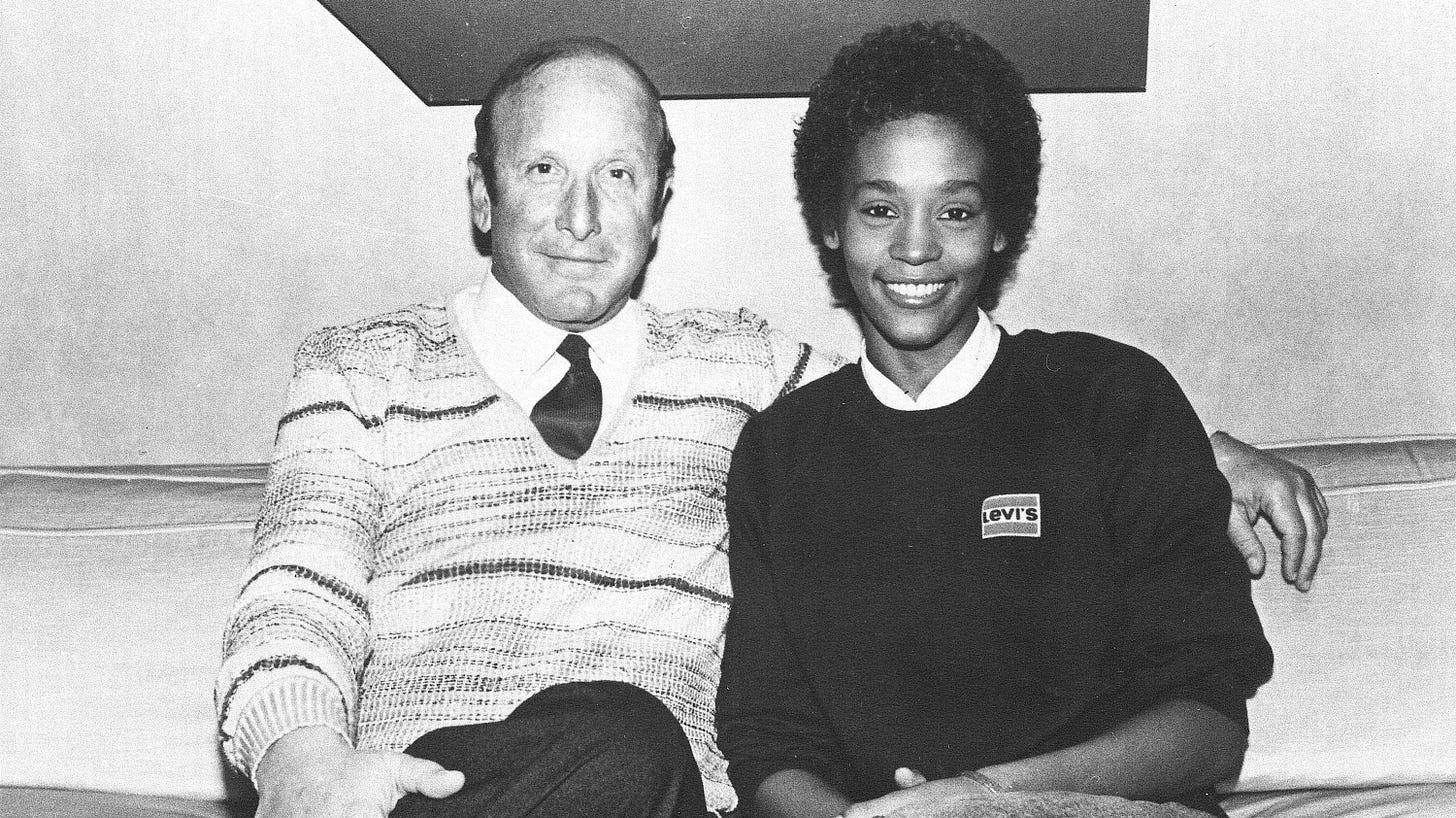
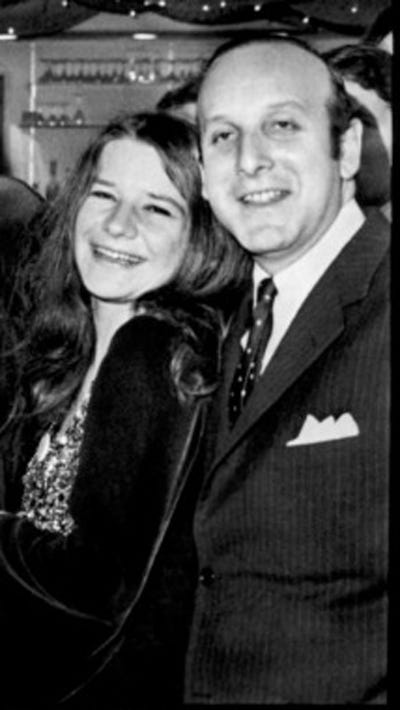
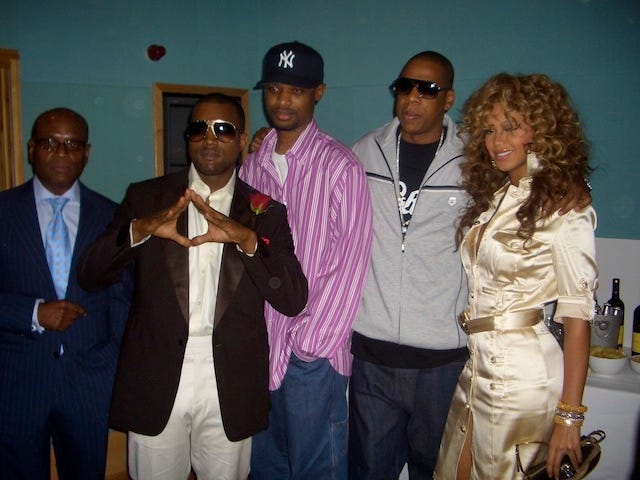

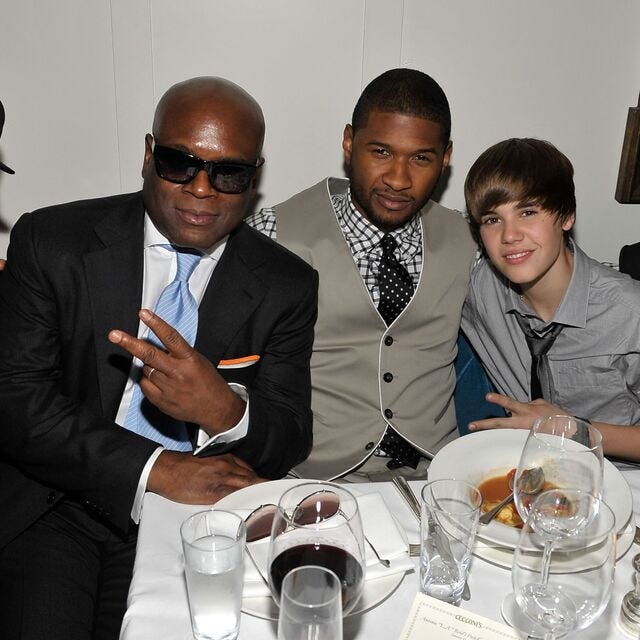
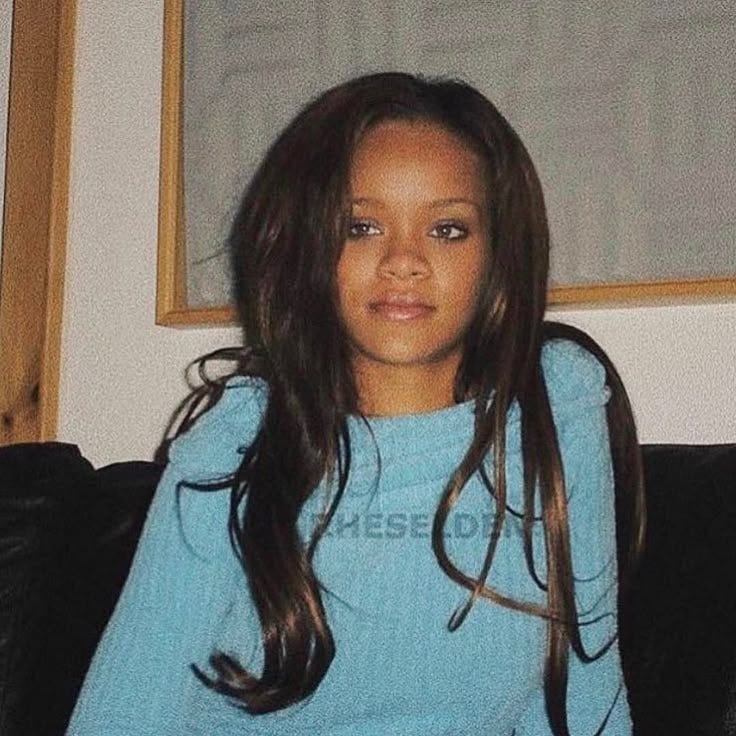

You are a great writer. I felt every emotion. You’re writing history. Pls, when the trial ends, put these articles in a book. Your articles remind me of the Vanity Fair articles under Tina Brown in the 90s. You’re amazing. God bless.
i found you by happenstance. you are a wonderful writer.